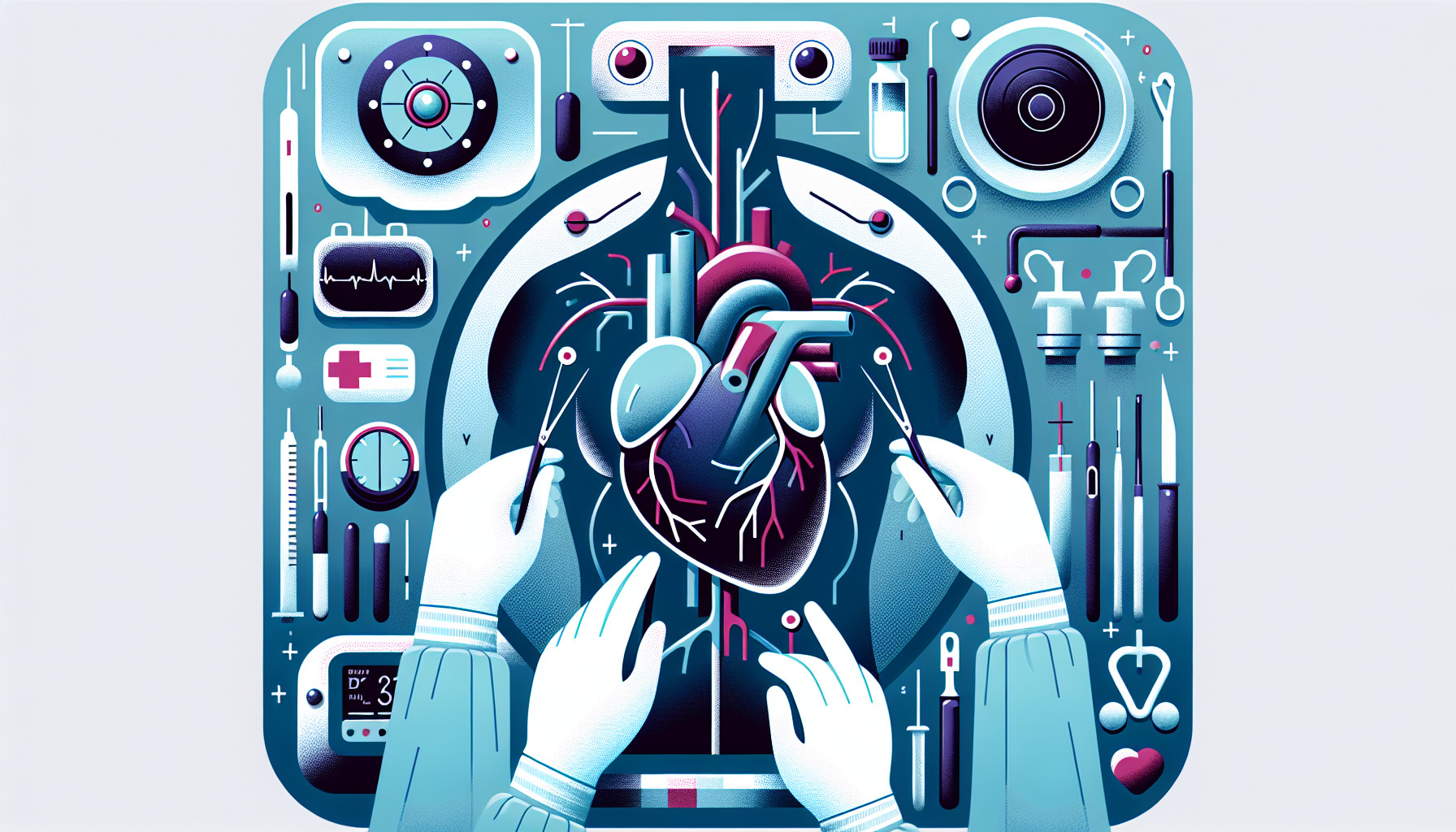Our Summary
The study investigates two types of heart bypass surgery: on-pump and off-pump. These procedures are used to treat patients who have blockages in three of their heart’s arteries (a condition known as triple-vessel coronary artery disease). The difference between the two methods is that the on-pump surgery uses a heart-lung machine, while the off-pump procedure does not.
The researchers randomly assigned 274 patients to undergo either on-pump or off-pump bypass surgery. They then tracked any major heart-related and stroke-related events (like death, heart attack, stroke, or the need for another surgery), as well as other outcomes such as infection, time on a ventilator, time in the ICU, length of hospital stay, and kidney failure after the surgery.
The patients were followed for an average of around 31 months. The majority of the patients were men, and their average age was about 61 years.
The study found that there was no significant difference between the two groups in terms of major heart-related and stroke-related events or the other outcomes measured. The findings suggest that both types of surgery can be equally effective for patients with triple-vessel coronary artery disease, when performed by a skilled surgeon.
FAQs
- What are the two types of heart bypass surgeries investigated in the study?
- What was the average follow-up period for the patients involved in the study?
- Did the study find any significant difference between the on-pump and off-pump bypass surgeries in terms of major heart-related and stroke-related events?
Doctor’s Tip
One important tip a doctor might give a patient undergoing coronary artery bypass surgery is to follow their post-operative care instructions carefully. This may include taking medications as prescribed, attending follow-up appointments, participating in cardiac rehabilitation, making lifestyle changes (such as quitting smoking, eating a healthy diet, and exercising regularly), and managing other health conditions like diabetes or high blood pressure. Following these recommendations can help improve the success of the surgery and reduce the risk of complications.
Suitable For
Patients who are typically recommended for coronary artery bypass surgery include those with:
- Severe blockages in multiple coronary arteries, particularly in three or more arteries (triple-vessel coronary artery disease).
- Symptoms of coronary artery disease, such as chest pain (angina) or shortness of breath, that have not improved with medications or other treatments.
- High risk of heart attack or other serious heart-related events due to the severity of their blockages.
- Patients who are not good candidates for other treatments, such as angioplasty or stenting, due to the complexity or location of their blockages.
- Patients with diabetes, as they tend to have more severe and diffuse coronary artery disease.
- Patients with a history of previous heart surgeries or procedures that have not been successful in treating their coronary artery disease.
- Patients with left main coronary artery disease, which is a particularly high-risk condition that often requires bypass surgery.
Ultimately, the decision to recommend coronary artery bypass surgery is made on a case-by-case basis by a cardiologist or cardiothoracic surgeon, taking into account the patient’s overall health, the severity of their coronary artery disease, and other individual factors.
Timeline
Before coronary artery bypass surgery, a patient may experience symptoms such as chest pain, shortness of breath, fatigue, and weakness due to blockages in their heart arteries. They may undergo diagnostic tests such as an angiogram to determine the extent of the blockages and determine if bypass surgery is necessary.
After the surgery, the patient will be closely monitored in the intensive care unit (ICU) for a period of time to ensure they are stable and recovering well. They may need to be on a ventilator to help with breathing, and medications will be given to manage pain and prevent infection.
As the patient progresses in their recovery, they will gradually be moved to a regular hospital room and then eventually discharged home. Rehabilitation and cardiac rehabilitation programs may be recommended to help the patient regain strength and cardiovascular fitness.
Overall, the timeline for a patient before and after coronary artery bypass surgery can vary depending on the individual’s health status and how they respond to the surgery, but the goal is to improve their heart function and quality of life.
What to Ask Your Doctor
Some questions a patient should ask their doctor about coronary artery bypass surgery include:
- What are the potential risks and complications associated with coronary artery bypass surgery?
- How experienced are you in performing this type of surgery?
- What is the success rate of coronary artery bypass surgery for patients with triple-vessel coronary artery disease?
- How long is the recovery process after coronary artery bypass surgery?
- Will I need to make any lifestyle changes or take medications after the surgery?
- What are the chances of needing another surgery in the future after undergoing coronary artery bypass surgery?
- How long will I need to stay in the hospital after the surgery?
- Are there any alternative treatment options to consider before undergoing coronary artery bypass surgery?
- How often will I need follow-up appointments after the surgery?
- What can I do to improve my overall heart health and reduce the risk of future heart-related issues after the surgery?
Reference
Authors: Forouzannia SM, Forouzannia SK, Yarahmadi P, Alirezaei M, Shafiee A, Anari NY, Masoudkabir F, Dehghani Z, Pashang M. Journal: J Cardiothorac Surg. 2023 Apr 13;18(1):140. doi: 10.1186/s13019-023-02258-6. PMID: 37046338
